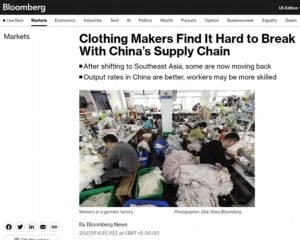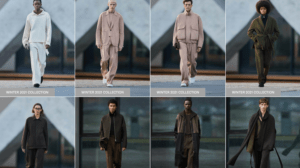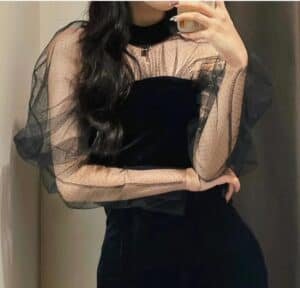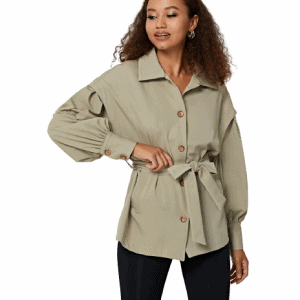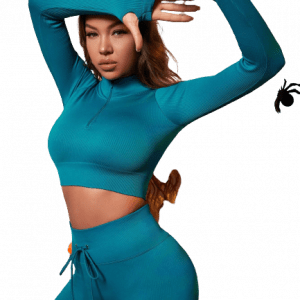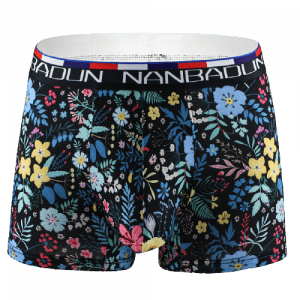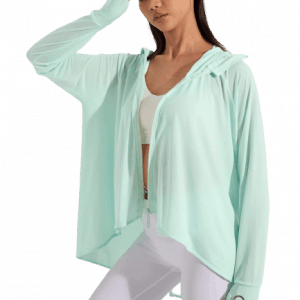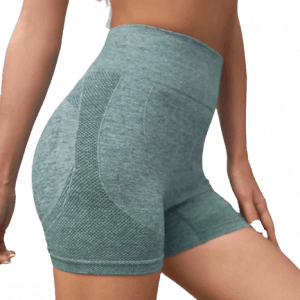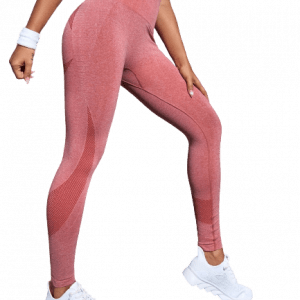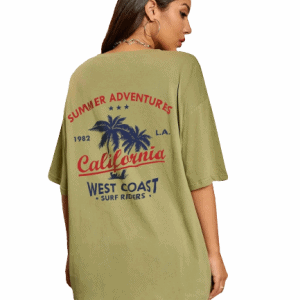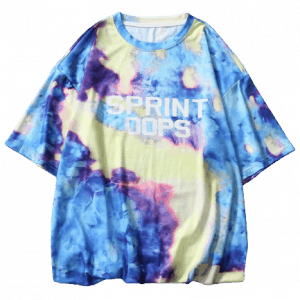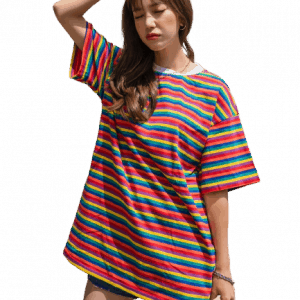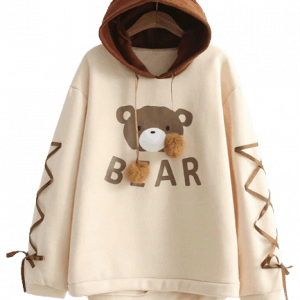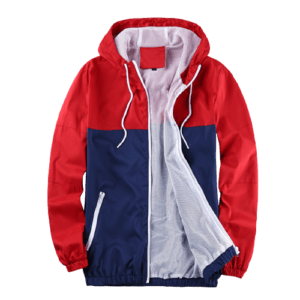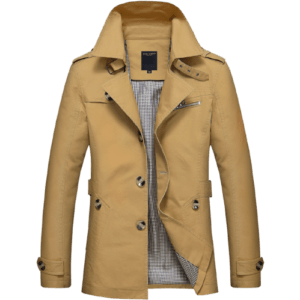Can you imagine what the future will be like? Do you see a clean, green, harmonious world? They say, “Green is the new black,” a prominent environmental protection slogan in the fashion circle. Environmental protection and sustainable development are present in the evolution of fashion. Take a look at the model. There’s a picture of the earth painted on her face. Isn’t this a stark warning?

Many brands and designers have been using and advocating for environment-friendly products. They are also committed to spreading the concept of sustainability. As fashion brands go eco-chic, a more timeless and profound social significance is what they prefer to showcase their fashion, thus, creating a meaningful message.
Man-made materials are also environmentally friendly
Some of the natural clothing materials we are familiar with are cotton, hemp, and silk. However, with the rise of science and technology, biodegradable and recyclable artificial materials have become more favorable. As a result, some brands prefer sustainable artificial materials.
In addition, they provide new ideas and opportunities to promote going eco-chic, which is better for the fashion industry’s future.
Econyl ® recycled nylon is a new material produced by Prada. In collaboration with spinning manufacturer Aquafil, they could purify waste plastics, fishing nets, and textile fibers collected from the ocean.
Econyl ® recycled nylon can be recycled indefinitely through degradation and repolymerization processes without compromising product quality.
Prada has used this new eco-friendly material to create a collection of eco-chic and classic handbags.
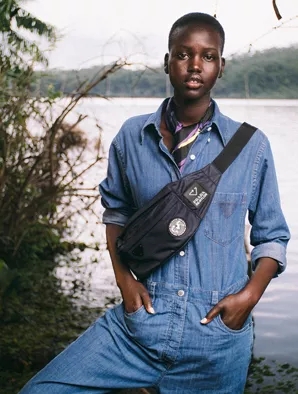
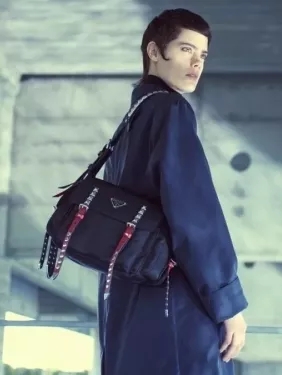
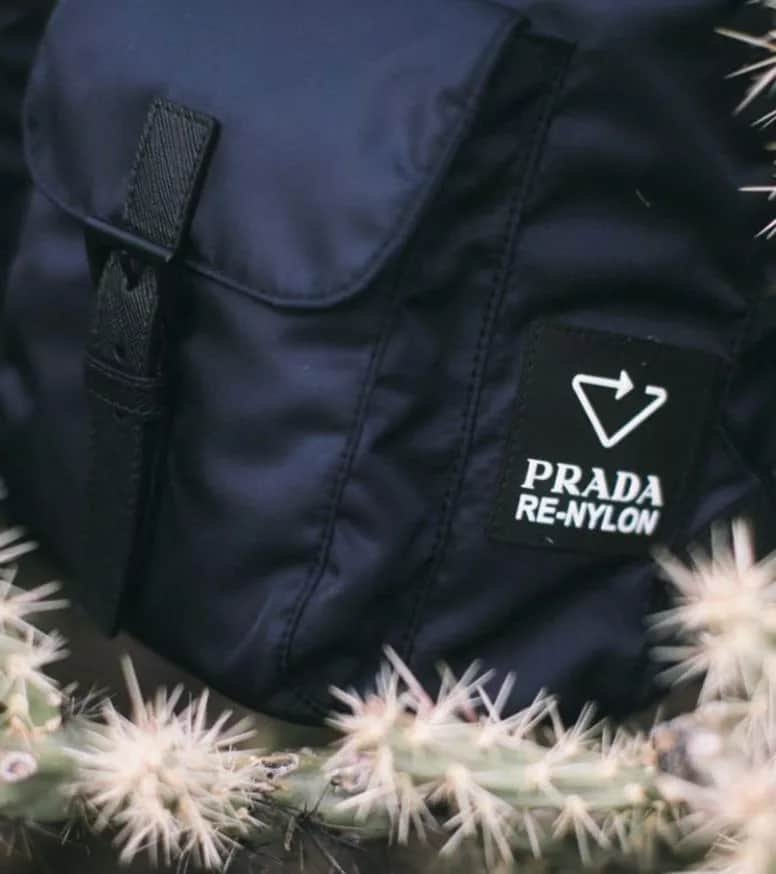
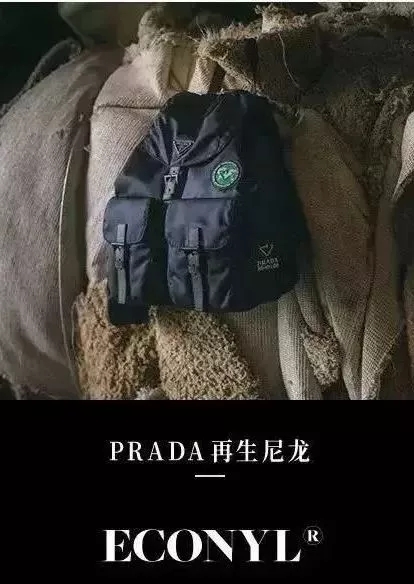
Zilver also uses recycled nylon in its 2020 spring/summer eco-chic collection. They also use the more common eco-friendly materials such as organic cotton and traceable wool.
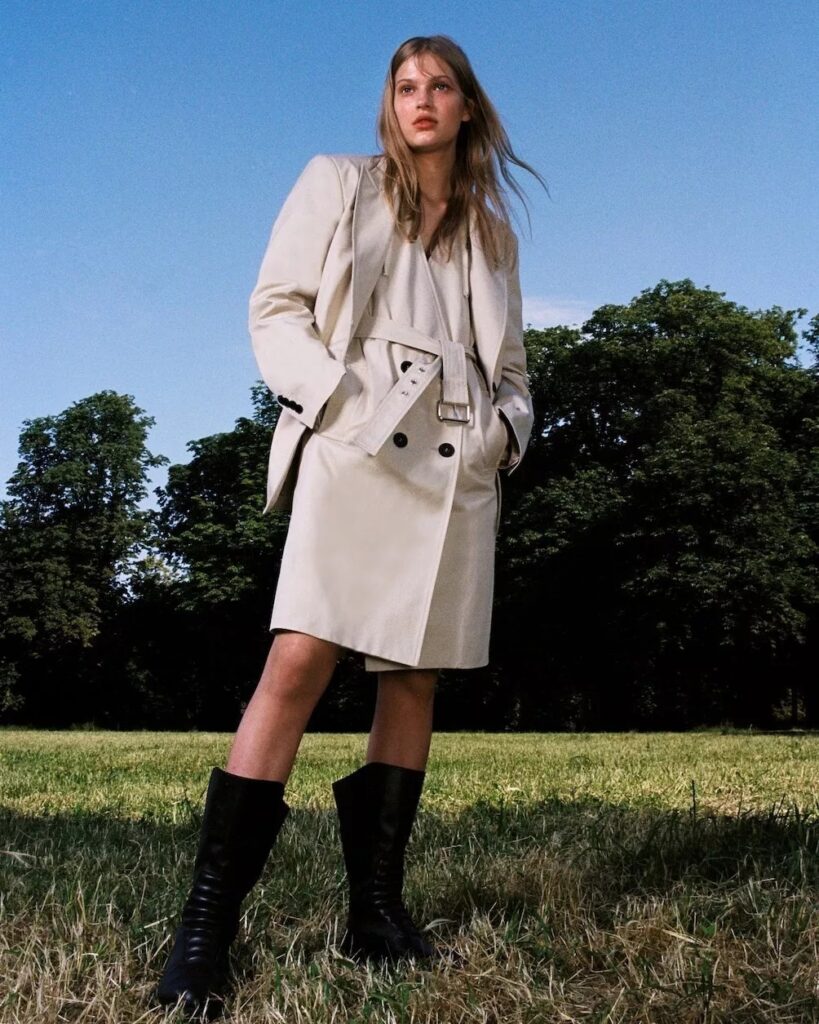
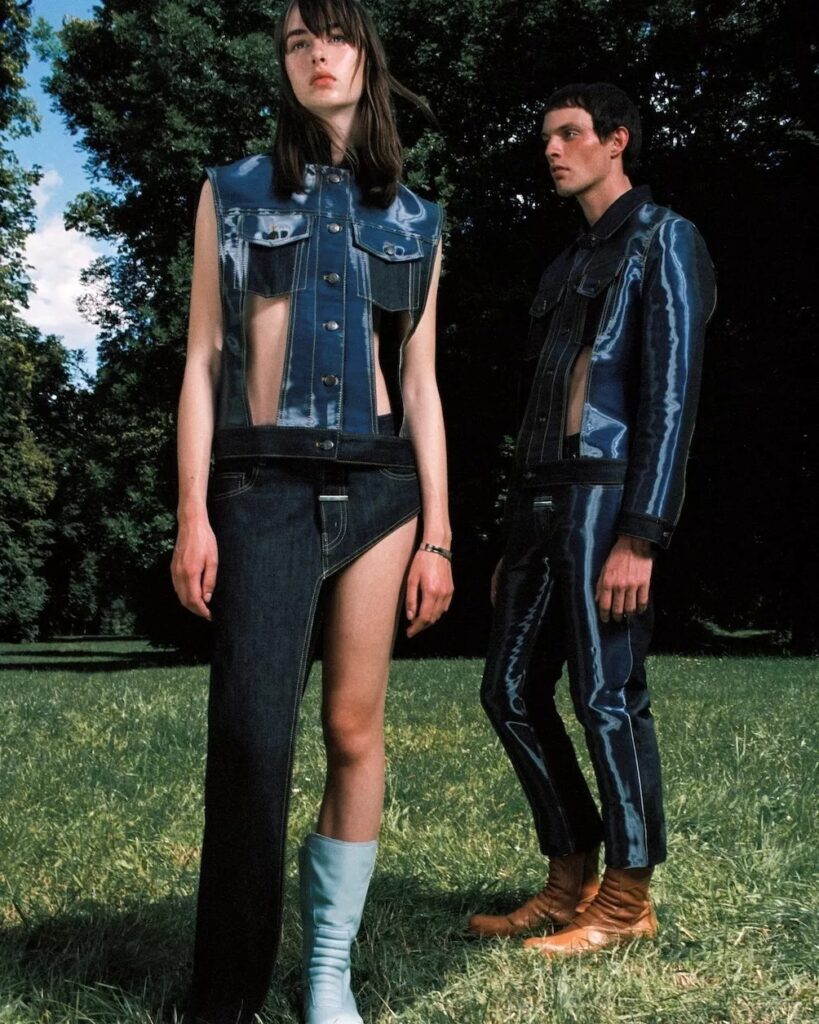
Stella McCartney’s namesake brand has been adhering to the idea of environmental protection. From the design to the choice of materials, they implement the concept of sustainable development. Most of the clothes in the spring/summer 2020 collection used recycled polyester, sustainable rayon, and other environmentally friendly materials. As Stella McCartney showcased her eco-chic designs, she says, “What I’m trying to do is really find a way for the fashion industry to grow sustainably.”


The Gift of Nature
When it comes to the relationship between plants and clothing, we can trace it back thousands of years ago. This time was when primitive humans learned to use plants as clothing to cover their bodies. But this was only for the most basic.
With the development of technology and fashion, people extract natural fiber from plants and utilize it in creating eco-chic fashion.
Lotus fiber is one of the finest textile fibers. Because it is very precious, there’s a limit to the output of workers every day. In fact, the process of making lotus fiber is not complicated. However, the fiber is very fine and easy to rot, so it is necessary to twist and make the yarn on the same day, limiting its industrial production.
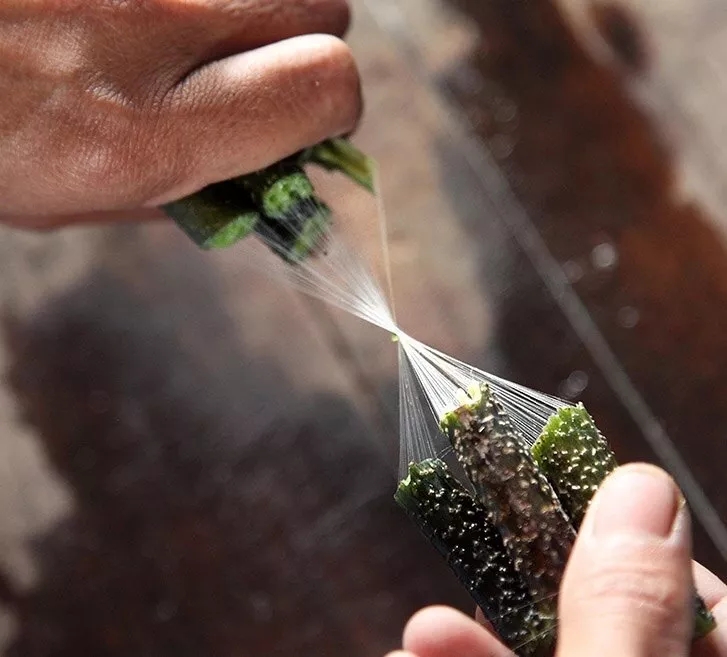
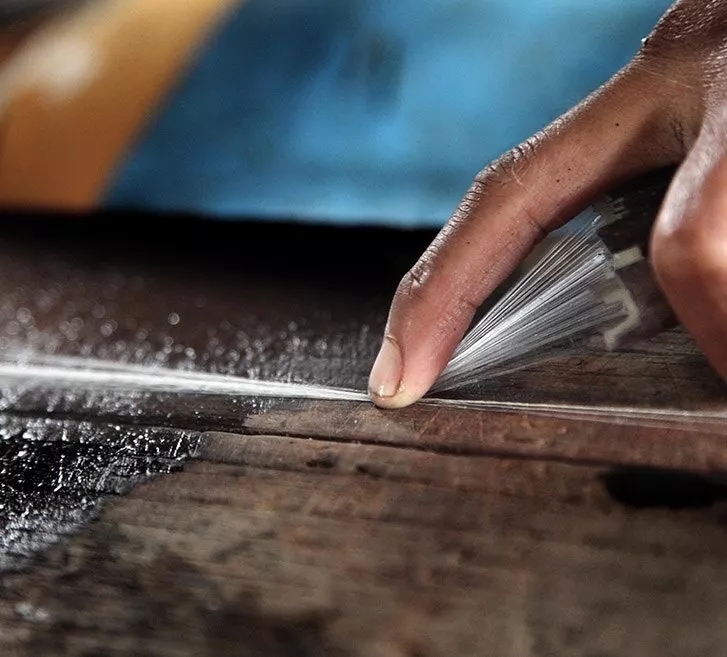
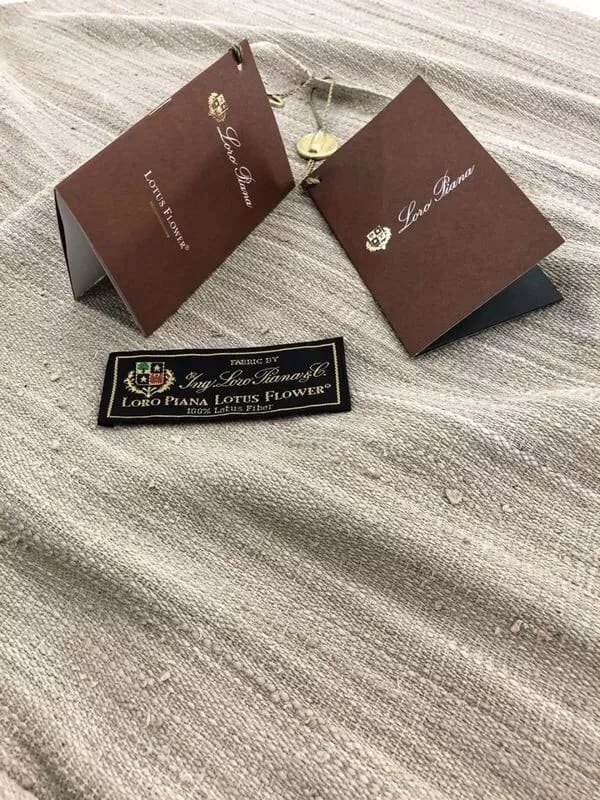
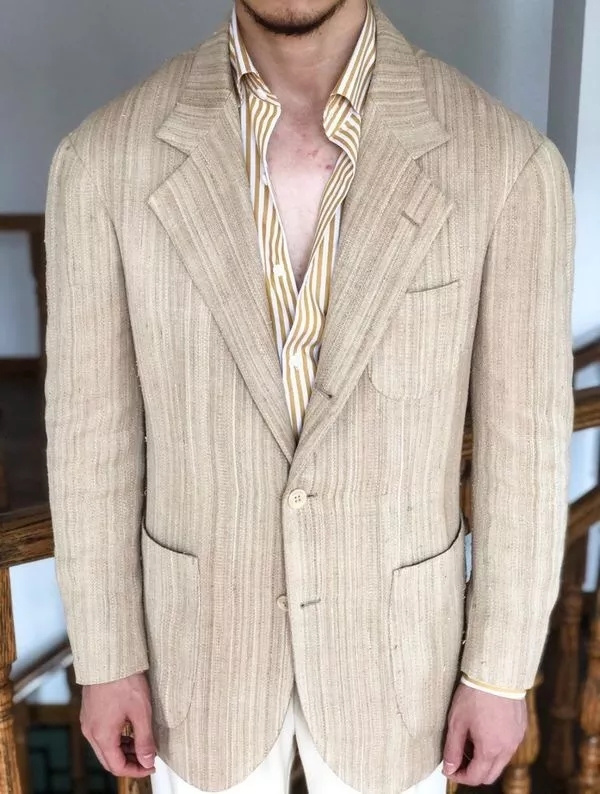
Local women in Madagascar make Acona fiber from the tropics. This supports the economic development of the local ecological reserve and provides pure natural environmental protection material for fashion. Manufacturers also use coconut fiber to make hats, bags, garments. These eco-chic products frequently appeared in international shows recently.
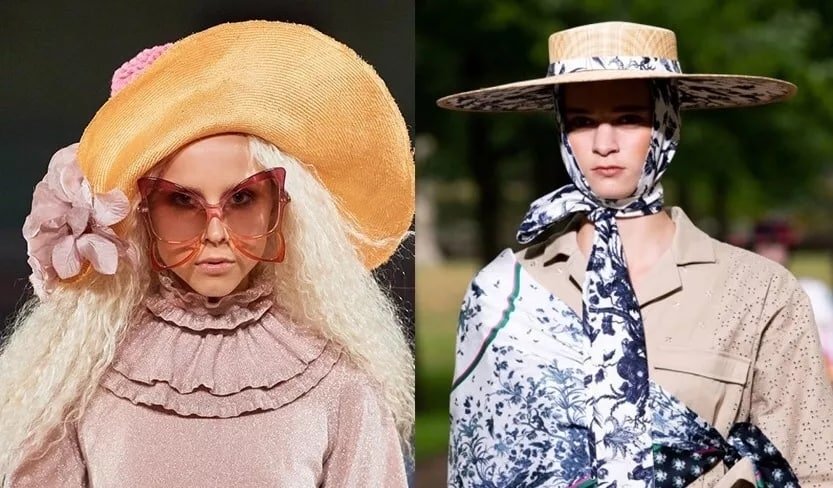
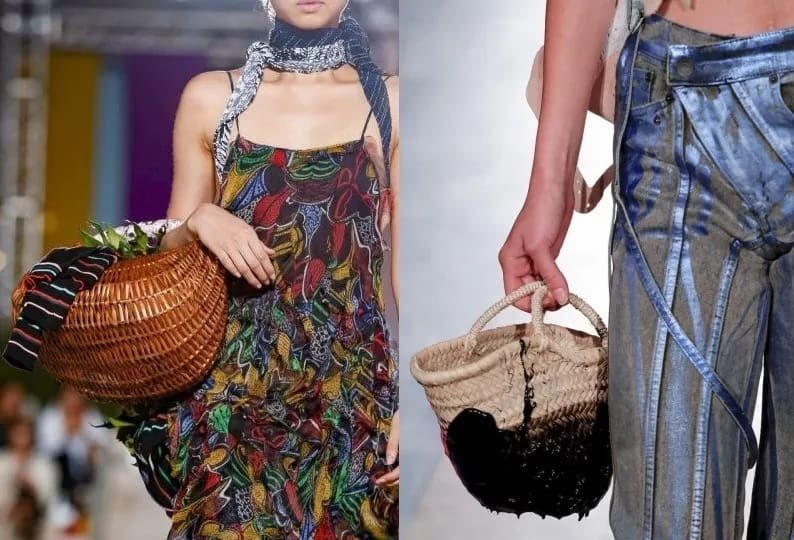
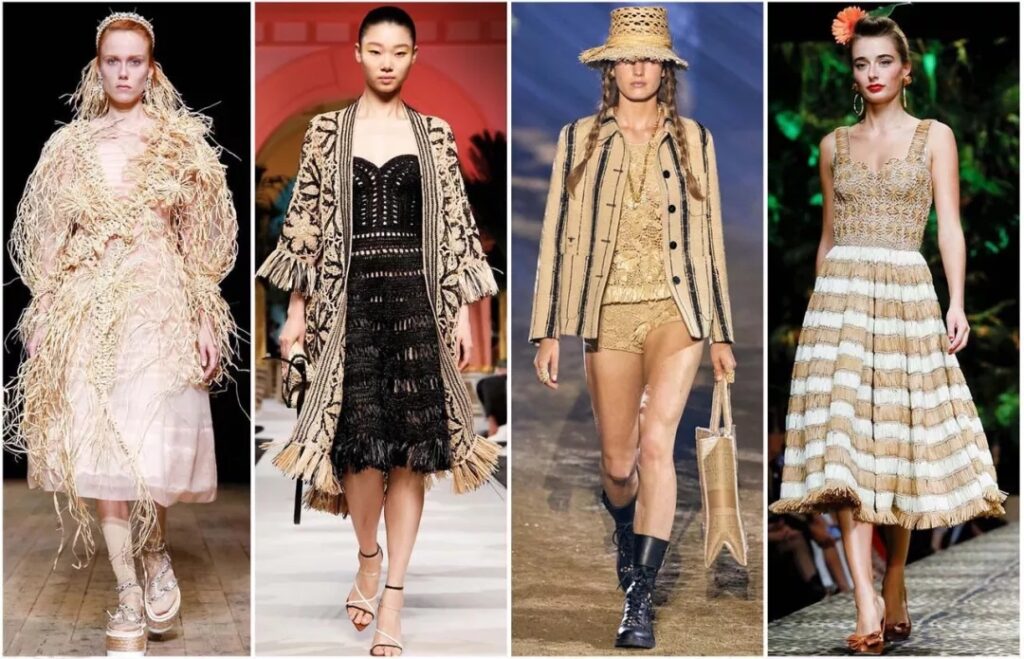
Reviving old products
Recycle and reuse. Together with natural materials and green production, we can form an environmentally friendly and sustainable manufacturing loop. This will be particularly evident in the fashion industry.
The recycling of scrap clothes saves raw materials and reduces production pollution.
Hence, the concept of “zero waste” design is catching on.
Fashion brand RE;Code advocates for “innovative design without waste.” They collect spoiled fabrics and clothing from brands all over the world. They then ash them and reorganize stale materials to create new eco-chic materials.

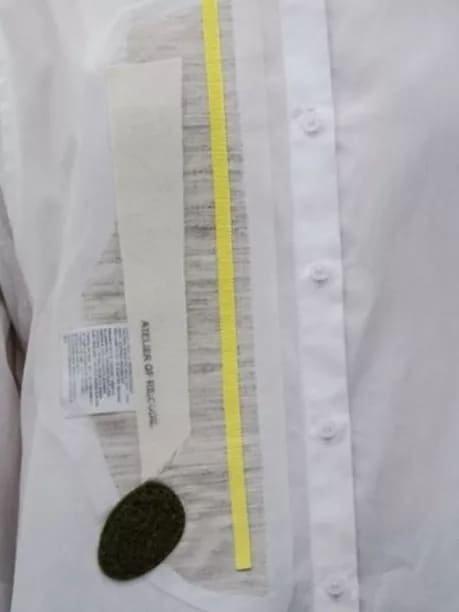
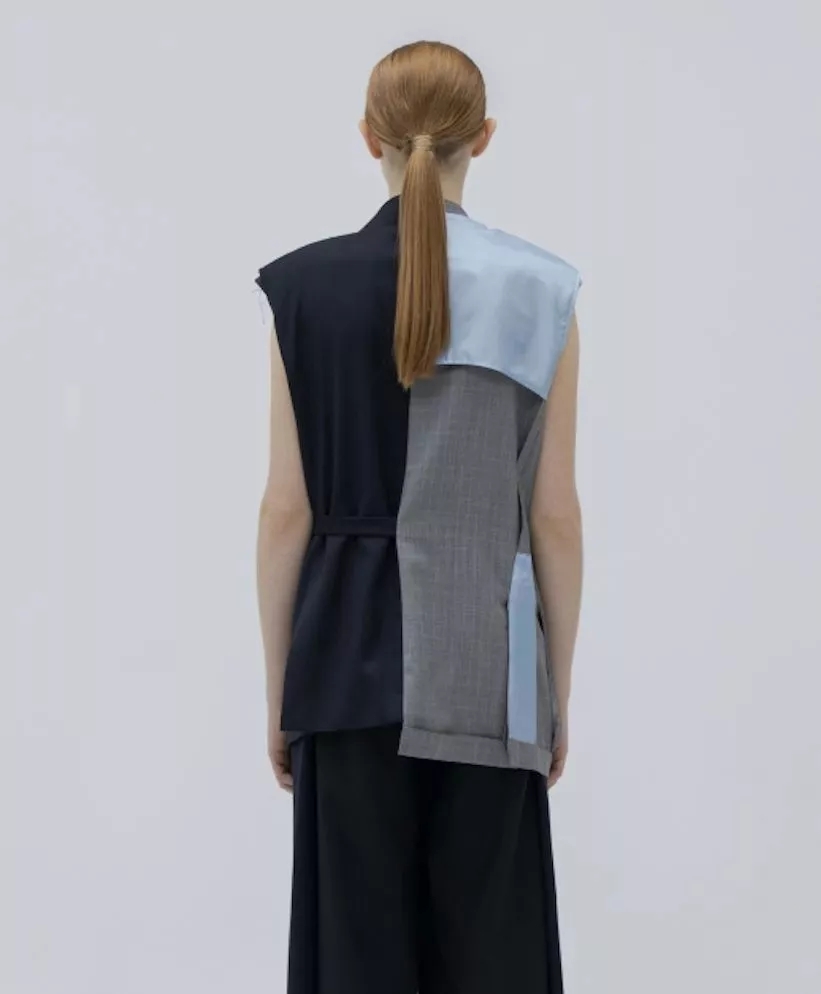

“Zero waste” designer Amanda Borgfors Meszaros is good at turning waste materials into new ones for different fashion trends.


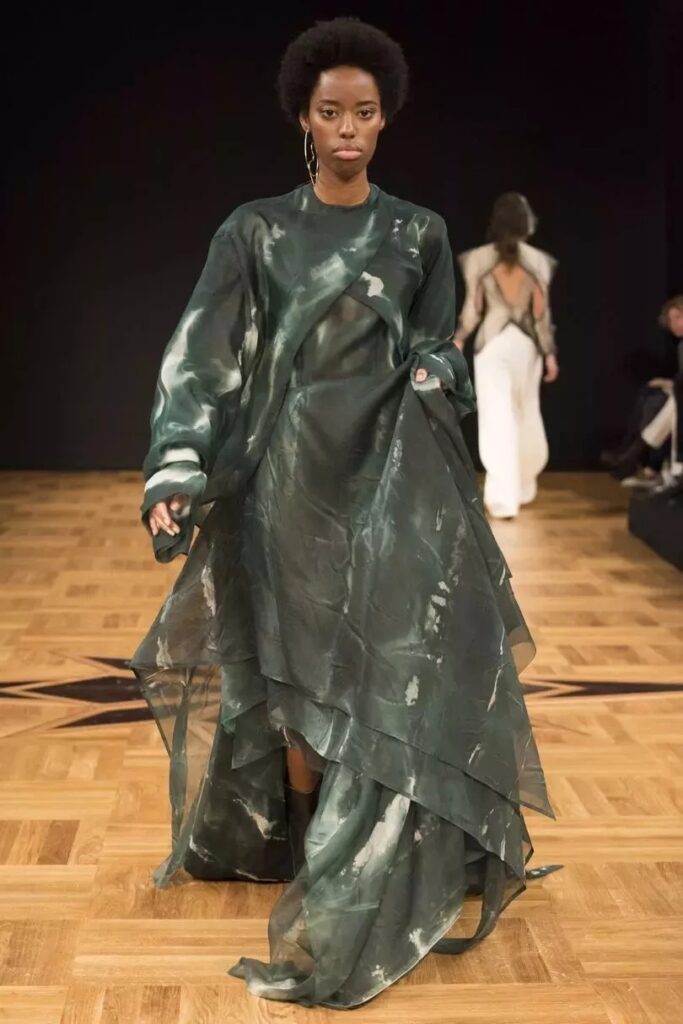
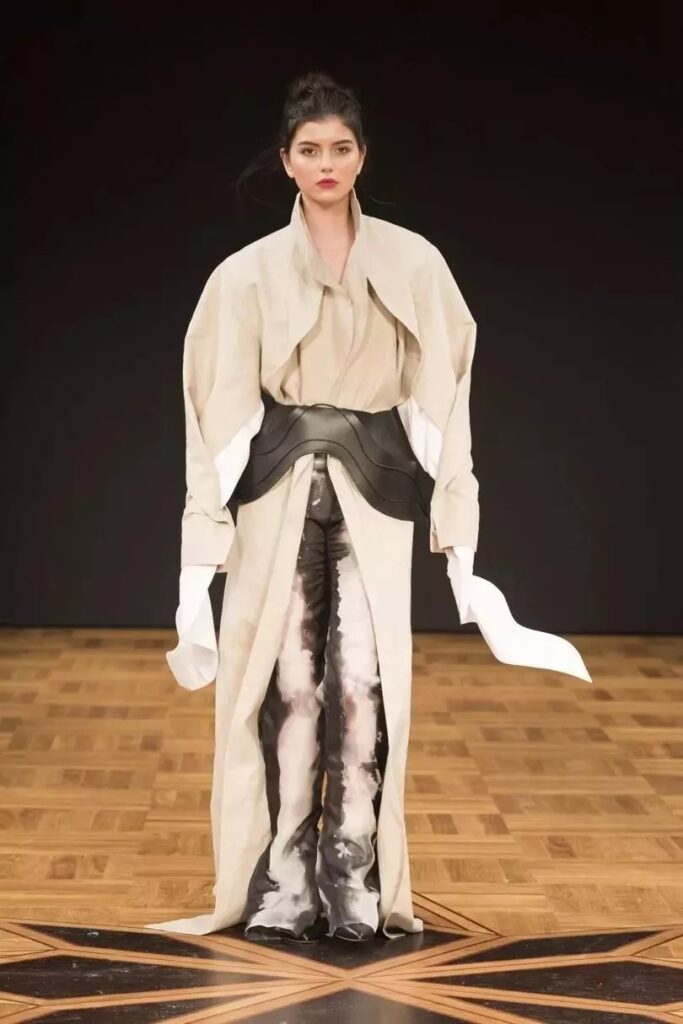
“Zero waste” designer Amanda Borgfors Meszaros is good at turning waste materials into new ones for different fashion trends. On the road to environmental protection and sustainable development, the fashion industry actively embraces the future of eco-chic fashion by having a very creative and intense attitude. We always say we can see the future when the arrival of the future starts now.

